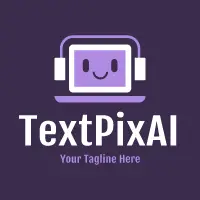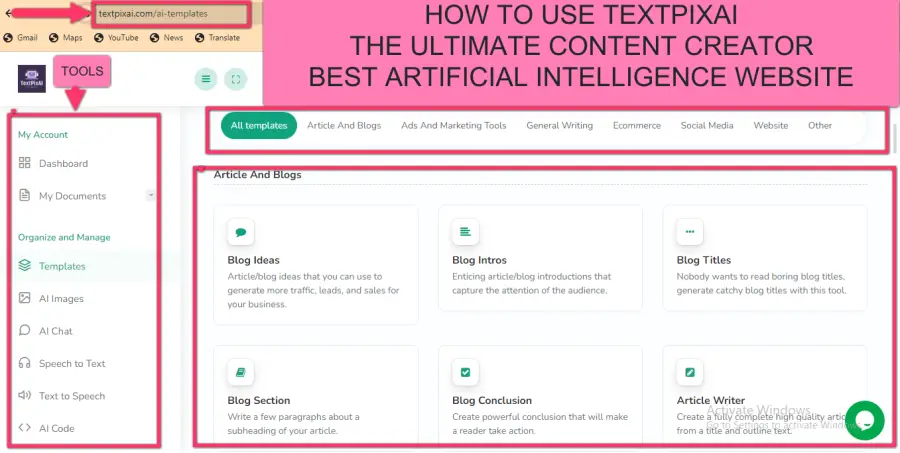AI in Medical Diagnosis
I. Introduction
In the field of healthcare, Artificial Intelligence (AI) has emerged as a transformative force, particularly in the domain of medical diagnosis. This article aims to provide a comprehensive overview of the profound impact AI has had on medical diagnosis, elucidating its advantages, challenges, real-world applications, and the implications for healthcare practitioners and patients alike. By the end of this article, readers will gain a deep understanding of how AI is reshaping the landscape of medical diagnosis and revolutionizing healthcare.
You may also like to read:
The Economic Impact of AI in Healthcare
Medical diagnosis is the cornerstone of effective healthcare. Timely and accurate diagnoses are critical for devising appropriate treatment plans, optimizing patient outcomes, and reducing healthcare costs. With the advent of AI, the landscape of medical diagnosis is undergoing a remarkable transformation. AI is not just a buzzword; it's a technological leap that holds the potential to redefine the way we approach healthcare.
II. Advantages of AI in Medical Diagnosis
A. Speed and Efficiency
AI systems can process medical data swiftly, leading to faster diagnoses and reduced wait times for patients. This speed can be especially crucial in emergencies, where every minute counts. Unlike traditional diagnostic methods that may require extensive manual analysis, AI algorithms can analyze vast datasets within seconds.
B. Accuracy and Precision
One of the standout advantages of AI in medical diagnosis is its ability to deliver accurate and precise results. AI algorithms can detect subtle patterns and anomalies in medical data that might elude human practitioners. This leads to higher diagnostic accuracy, reducing the risk of misdiagnosis and ensuring that patients receive the most appropriate treatment.
C. Handling of Big Data
The healthcare sector generates massive amounts of data daily, including electronic health records (EHRs), medical images, and genetic information. AI can efficiently analyze this data, enabling healthcare providers to make data-driven decisions. It can identify correlations, trends, and insights that may not be apparent through traditional methods.
III. Real-World Applications
AI's impact on medical diagnosis extends across various specialties and clinical settings. Here are some real-world applications that highlight the transformative potential of AI:
A. Radiology and Imaging
AI is revolutionizing radiology by enhancing the analysis of medical images such as X-rays, MRIs, and CT scans. AI algorithms can identify abnormalities, assisting radiologists in making more accurate diagnoses. For example, in the detection of lung cancer, AI has demonstrated remarkable accuracy in identifying nodules and lesions.
B. Pathology and Histology
In pathology, AI aids in the analysis of tissue samples. By automating the identification of cellular anomalies, it improves the accuracy of cancer diagnoses and reduces human error. Pathologists can collaborate with AI systems to reach more precise conclusions, particularly in cases of complex diseases like cancer.
C. Cardiology
AI is transforming cardiology by analyzing electrocardiograms (ECGs) and other cardiac data to detect heart conditions and predict cardiovascular events. Algorithms can flag ECGs with irregular patterns for further review by cardiologists, streamlining the diagnostic process.
D. Dermatology
In dermatology, AI can analyze skin images to identify skin conditions, potentially speeding up the diagnosis of skin diseases. By comparing skin lesions to a vast database of images, AI can provide dermatologists with valuable insights, aiding in the early detection of skin cancer and other dermatological conditions.
E. Infectious Disease Detection
AI systems can analyze clinical data and predict outbreaks of infectious diseases, assisting public health efforts. During epidemics or pandemics, AI can process data from various sources, including patient symptoms, travel patterns, and laboratory results, to predict disease spread and allocate resources effectively.
These real-world applications demonstrate how AI is seamlessly integrating into the healthcare ecosystem, offering tangible benefits for both patients and healthcare providers.
IV. Challenges and Considerations
While AI holds immense promise in medical diagnosis, it is not without its challenges and considerations:
A. Data Privacy and Security
The use of patient data in AI diagnosis raises significant privacy and security concerns. Electronic health records (EHRs) contain sensitive information, and ensuring its confidentiality is paramount. Healthcare institutions must implement robust data encryption, access controls, and compliance with data protection regulations to safeguard patient information.
B. Interpretability
AI algorithms often operate as "black boxes," making it challenging to understand how they arrive at specific diagnoses. Improving the interpretability of AI systems is crucial for gaining trust in their recommendations. Researchers are working on developing explainable AI (XAI) techniques that provide insights into the decision-making process of AI algorithms.
C. Regulatory Approval
AI-based diagnostic tools must undergo rigorous testing and receive regulatory approval to ensure their safety and efficacy. Regulatory agencies, such as the U.S. Food and Drug Administration (FDA), play a vital role in evaluating and certifying AI-powered medical devices. This process ensures that AI solutions meet stringent standards before they can be used in clinical practice.
V. The Human-AI Partnership
It's essential to emphasize that AI should be seen as a tool to augment human capabilities, not replace them. The collaboration between AI systems and healthcare professionals can lead to the best possible outcomes. AI can assist clinicians by processing large datasets, flagging potential issues, and providing recommendations. However, the final diagnosis and treatment decisions should always involve human expertise and judgment.
VI. Case Studies
To illustrate the real-world impact of AI in medical diagnosis, let's explore two prominent case studies:
A. IBM Watson for Oncology
IBM Watson for Oncology is an AI-powered system that assists oncologists in identifying personalized treatment options for cancer patients. It reviews medical literature, clinical trial data, and patient records to make treatment recommendations. Watson for Oncology can analyze a patient's medical history and genetic information to suggest targeted therapies and clinical trial opportunities. This AI system empowers oncologists with a wealth of knowledge and insights, helping them make more informed decisions about cancer treatment.
B. Google Health's DeepMind
DeepMind, a subsidiary of Google Health, has developed AI algorithms that excel in medical image analysis. In collaboration with Moorfields Eye Hospital in London, DeepMind's AI system was trained to analyze retinal scans and detect eye diseases, including diabetic retinopathy and age-related macular degeneration. In clinical trials, DeepMind's AI achieved accuracy levels comparable to expert ophthalmologists. This breakthrough demonstrates the potential of AI to expedite the diagnosis of eye diseases and prevent vision loss.
These case studies exemplify how AI is actively contributing to medical diagnosis, enhancing the capabilities of healthcare professionals and improving patient care.
VII. Future Outlook
A. Expansion of AI Applications
AI is likely to continue expanding its role in medical diagnosis. New applications and improved algorithms will further enhance its capabilities. The healthcare industry will witness the development of AI systems specialized in diverse medical fields, ranging from neurology to gastroenterology. These systems will aid in diagnosing rare and complex diseases, ultimately benefiting patients with previously unmet medical needs.
B. Integration into Healthcare Systems
As AI systems become more trusted and capable, they will become integral components of healthcare systems worldwide. Healthcare providers will increasingly rely on AI-driven insights to streamline diagnosis and treatment processes. Additionally, AI will play a pivotal role in population health management, helping healthcare organizations identify at-risk populations and implement preventive measures.
VIII. Conclusion
In conclusion, AI is rapidly transforming medical diagnosis, offering unparalleled speed, accuracy, and efficiency. While challenges remain, the potential benefits for patients and healthcare systems are enormous. Embracing AI in medical diagnosis represents a leap forward in healthcare's ability to provide timely and precise care.
The collaboration between AI and human expertise holds the key to unlocking the full potential of medical diagnosis. As AI continues to evolve, healthcare practitioners must adapt and embrace this technological revolution to ensure that patients receive the best possible care.
AI is not here to replace doctors and diagnosticians; it's here to empower them, provide valuable insights, and improve patient outcomes. With responsible AI development, robust data security measures, and ongoing collaboration, the future of medical diagnosis looks promising, redefining the way we approach healthcare in the 21st century.
References
- Esteva, A., Kuprel, B., Novoa, R. A., Ko, J., Swetter, S. M., Blau, H. M., & Thrun, S. (2017). Dermatologist-level classification of skin cancer with deep neural networks. Nature, 542(7639), 115-118.
- Rajpurkar, P., Irvin, J., Zhu, K., Yang, B., Mehta, H., Duan, T., ... & Langlotz, C. (2018). Chexnet: Radiologist-level pneumonia detection on chest X-rays with deep learning. arXiv preprint arXiv:1711.05225.
- Esteva, A., Robicquet, A., Ramsundar, B., Kuleshov, V., DePristo, M., Chou, K., ... & Corrado, G. (2019). A guide to deep learning in healthcare. Nature medicine, 25(1), 24-29.
This comprehensive article on AI in medical diagnosis provides valuable insights for healthcare professionals, researchers, policymakers, and anyone interested in the transformative power of AI in healthcare. It underscores the potential of AI to enhance the accuracy and efficiency of medical diagnoses, ultimately improving patient care and outcomes.







